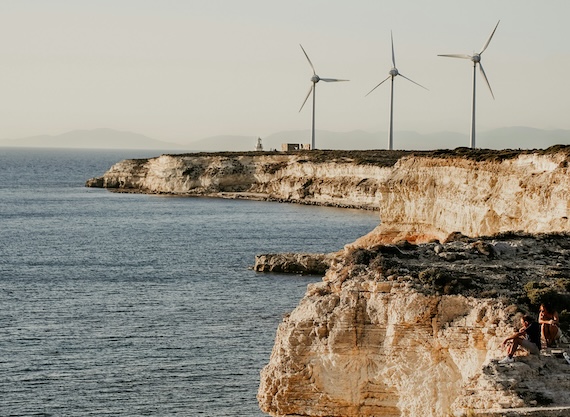Ann Arbor (Informed Comment) – Türkiye has emerged as the host of COP31, after a vigorous contest with Australia. In a compromise, the representatives of the world’s nearly 200 countries will assemble in Türkiye for the conference, but Australia will lead the negotiations. COP refers to the Conference of Parties to the Kyoto Protocol, initiated in 1995, on the reduction of greenhouse gas emissions.
Türkiye is the world’s 16th largest economy, with a nominal GDP of about $1.5 trillion, according to the International Monetary Fund. Australia is the world’s 15th largest economy, with a GDP of about $1.8 trillion. The two countries only look similar on the big consolidated numbers, though. Since Türkiye is much more populous, with a population of 85.8 million, it is also much poorer per capita than Australia (pop. 27.5 million). Both countries are in the G20.
Catherine Abreu points out that both candidates have weaknesses. Australia is the world’s largest exporter of coal, the dirtiest and most dangerous of the fossil fuels. Coal’s emissions of greenhouse gases when burned are twice that of fossil gas. Still, domestically Australia is a global leader in rooftop solar, at least proportionally.

Or by check:
Juan Cole
P. O. Box 4218,
Ann Arbor, MI 48104-2548
USA
(Remember, make the checks out to “Juan Cole” or they can’t be cashed)
As for Türkiye, the Ember energy consultancy reports that it is guaranteeing $8.7 billion in payments to domestic coal-driven power plants, which could slow down its transition to renewables. That isn’t the policy of a leader in fighting climate breakdown. Coal provides over a third of Türkiye’s electricity, and fossil fuels account for roughly half of Türkiye’s power generation.
The massive coal subsidy doesn’t make any economic or environmental sense. Ember notes, “Over the past decade, with a 77% reduction in installation costs, electricity generation from solar energy has become cheaper than domestic coal.”

Photo of wind turbines at Gallipoli by Cansu Hangül on Unsplash
As Informed Comment has reported this year, Türkiye is not without its achievements in the field of low-carbon renewable energy. It is the site of the largest solar power installation in a European country. I wrote, “Solar power soared by 39% in 2024 compared to the previous year. In 2023, solar only accounted for 5.7% of Türkiye’s electricity, but it is now 7.5%. Türkiye installed 3.1 gigawatts in new solar capacity in the first half of 2025, bringing its cumulative solar capacity to 27 gigawatts. That achievement took it past its goals for the entire year.”
Never miss an issue of Informed Comment: Click here to subscribe to our email newsletter! Social media will pretend to let you subscribe but then use algorithms to suppress the postings and show you their ads instead. And please, if you see an essay you like, paste it into an email and share with friends.
Wind and solar now generate 18% of the electricity in Türkiye. Along with hydroelectric power, about half of Türkiye’s grid is supplied by renewables, which does make it the leader on renewables in the Middle East — admittedly a low bar.
Türkiye is also making strides in the electrification of transportation. EV sales are up 120% in 2025, and the country now has about 300,000 registered electric vehicles on the road, out of 16.8 million vehicles in total, or 1.7%. Another 3.3% of vehicle registrations were hybrid vehicles that run on battery until its juice is depleted and then switch to gasoline. Türkiye now has 500,000 hybrids.
Türkiye is manufacturing its own EV, the Togg, and is trying to penetrate the European market.
Given the coal subsidies and heavy dependence on fossil gas, Türkiye’s green energy profile is respectable but not truly exemplary. The country has a lot of work to do if it is to convince the world that it is a leader on climate and green energy issues. Just as important, it must articulate a sustainable vision for the near future of the globe if it is to be a plausible leader at COP31.


 © 2026 All Rights Reserved
© 2026 All Rights Reserved